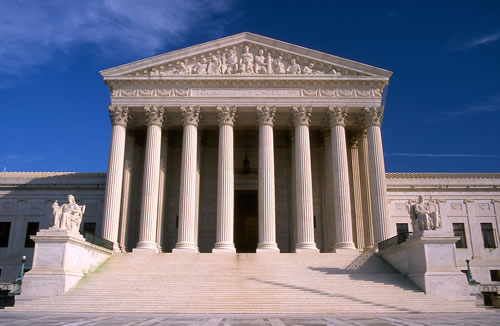

Share
For years, when a company goes broke, workers have found themselves waiting to receive pennies from the sell-offs of assets left by their busted bosses, after bankers, bondholders and other “secured creditors” take their bankruptcy cuts first.
On Dec. 7, the Supreme Court will hear a case that, if the settlement involved is upheld, could make things a lot worse – by shoving unpaid workers completely to the back of the line. That means they could get nothing at all.
The case started in 2008, when Jevic Transportation, a New Jersey trucking firm, filed for bankruptcy under Chapter 11 of the bankruptcy code, which sets up procedures and priorities for times when companies go broke and go out of business.
Bankruptcy law gives secured creditors – in Jevic’s case, two investment funds – first crack at what is left. Workers who lose unpaid wages when a firm goes broke are supposed to be next, before other “unsecured creditors” of a broke company.
But the 3rd U.S. Circuit Court of Appeals in Philadelphia, backing the New Jersey bankruptcy judge’s ruling, put Jevic’s workers last, trailing other “unsecured creditors.” The judge called Jevic an unusual case, and said that justified upsetting the settled order.
Though he did not say so, that settled order usually leaves workers out in the cold anyway – unless their union quickly and successfully intervenes when the bankruptcy train starts to roll. In this case, Jevic workers, led by Casimir Czyzewski, sued. So far, they’ve lost.
The practical effect of letting this lower court decision stand, the National Employment Law Project and the National Consumers League said in a friend-of-the-court brief for the Jevic workers, is that virtually all workers would get nothing when their employer goes broke.
“The 3rd Circuit upheld a structured dismissal order” of the Jevic case, resolving it, “that authorized the distribution of the estate’s remaining assets to general unsecured creditors, to the total exclusion of the debtor’s employees,” NCL and NELP said.
But workers’ claims for unpaid wages are “entitled to priority” under the law before those of other unsecured creditors, the two groups said. The court’s OK of the Jevic settlement “set a precedent for judicial nullification of essential protections Congress mandated for employees and other small creditors since the 19th century.”
NELP and the Consumers League asked the justices to decide if “a bankruptcy court can issue a structured dismissal that, as one of its terms, expressly strips non-consenting creditors” like the Jevic workers “of their priority rights.” They said the lower court can’t do so.
They also note other appeals courts have kept the workers’ place in line intact. NCL, NELP – siding with Czyzewski and the other workers – want the justices to throw out the Jevic settlement and its demotion of workers.

